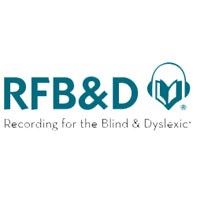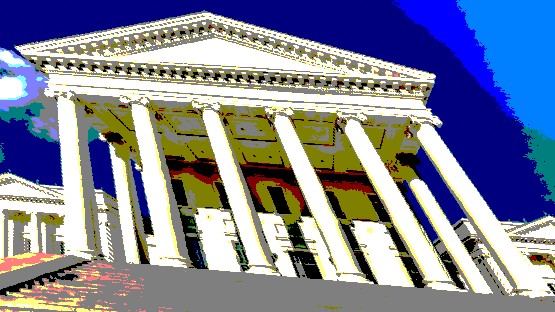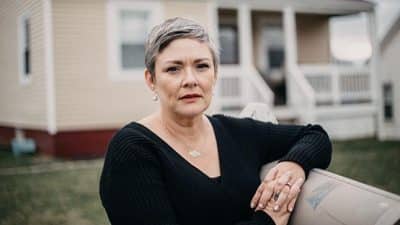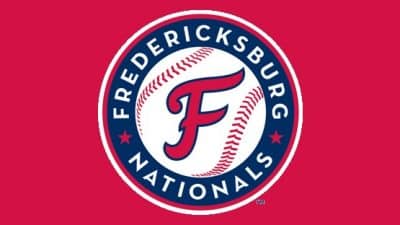
This program is a nonprofit organization that uses volunteers to record textbooks for those who cannot access the printed word. They are the nation’s largest provider of audio educational materials to those who cannot effectively read standard print. They have grown to have approximately 300,000 members, some 30 percent having visual impairments, more that 60 percent have learning disabilities, and a small percentage having physical disabilities that prevent them from being able to hold or access a book. RFB&D record every level of material – from children’s storybooks (where young children can follow along and learn to read by looking and listening) to medical school and law school texts.
The organization is very proud to still have a very strong and active Veterans Outreach component. Service members who suffered brain trauma and blindness while fighting in Iraq and Afghanistan use the audio texts to further their educations and as part of their rehabilitation. RFB&D even received an award in 2009 from the Blinded American Veterans Foundation, in recognition of these efforts; but the company has grown to mean a lot to members of all ages and of all circumstances, not just servicemen.
Mary Ann Coffey, the production director of the Charlottesville studio, who has just recently celebrated her sixth year anniversary with the organization, explains the importance of the organization by say, “We receive some beautiful notes from individuals who credit RFB&D with changing their lives, and thanking the volunteers for their help. And there is strong research, carried out by Johns Hopkins, Tufts and Rutgers, among others, that audio texts can result in significant gains in word recognition, reading rate and comprehension (leaping more than a grade level) as well as increasing motivation, self-confidence, interest in reading, and independence among students who have visual, learning or other print disabilities and need accommodation in instruction.”
Coffey had previously been a lawyer by education and work experience and only started out at RFB&D as a volunteer reader; reading law books. “I cannot imagine where I would be in my life if I could not read, so I wanted to spread that capability to those who cannot enjoy the printed word.”
All members receive their CDs or digital downloads from the company’s headquarters and digital library in Princeton, N.J. The library there has “books” that have been recorded by volunteers at 20 studios across the nation. There are studios located in New York; Princeton; Boston; Washington D.C.; Chicago; Los Angeles; Charlottesville; Athens, Ga.; Boca Raton, Fla.; Austin, Texas; Denver, Colo.; and Phoenix, Ariz. The studios have all sprouted up as the result of grassroots action.
The Charlottesville studio records 350+ books annually, with the help of 200 active volunteers who contribute 12,000 hours each year, while there are over 6,600 books recorded nationally during a year, and there are some 130,000 audio titles already available in the library.
“Our Charlottesville studio was opened in 1958, and is strongly supported by the region. We have volunteers who come from Waynesboro and Fishersville and from Richmond, among other places. Our strength is probably our medical readers; we have many people who were or are in the health professions volunteering for us,” Coffey said of her own branch. The large dependency of medical text from the area comes from the studio’s closeness to the University of Virginia’s Medical Center and the large amounts of volunteers with some medical expertise. “Studios get books based on the talent they have to read them. Each studio has a database of skills that shows whether a person there would have the capabilities to read them, and whether or not the volunteers would have enough hours to put the book through.”
One of RFB&D’s long standing traditions is their annual Record-a-Thon event. “It is our annual opportunity to make the community aware of our services, recognize and reward our volunteers with some fun books, food and attention, and raise friends and funds,” Coffey said of the event. “We are hosting an Open House at our studio on Tuesday, March 1, from 2 p.m. to 6:30 p.m., and everyone is welcome! We will have tours of our recording studio, lots of information on membership services, on volunteer opportunities and on the digital audio technology we use, and exerts to visit with. We also welcome any chance to speak to clubs, organizations, church groups, educational associations any time during the year on RFB&D.”
For anyone interested in volunteering to record, the Charlottesville studio holds a training session each month. Recording is a computer based process, and there are various steps that each volunteer must pass through, as they build on the initial training. Once the process is mastered, volunteers may audition to become a reader. Please call Marcia Rosen-House at 434.326.4956 to learn more. Marcia is available Tuesday, Wednesday and Thursday each week, from 9 to 4.
Recording for the Blind & Dyslexic is solely supported through donations and grants and would greatly appreciate community support for their studio, volunteers, and members. Contributions can be made at or addressed to RFB&D, 3500 Remson Court, Charlottesville, VA 22901, or people can support RFB&D on-line at the link below and then on “Sponsor This Team” on the team page.
Dates for volunteers
- March 1: Educator and Community Open House, 2-6:30 p.m.
- Feb. 28–March 5: Volunteers record extra hours during the event
To learn more, visit www.recordathon.org/charlottesville
Story by Suzi Foltz. Suzi is an intern with AugustaFreePress.com and a senior at Wilson Memorial High School.










